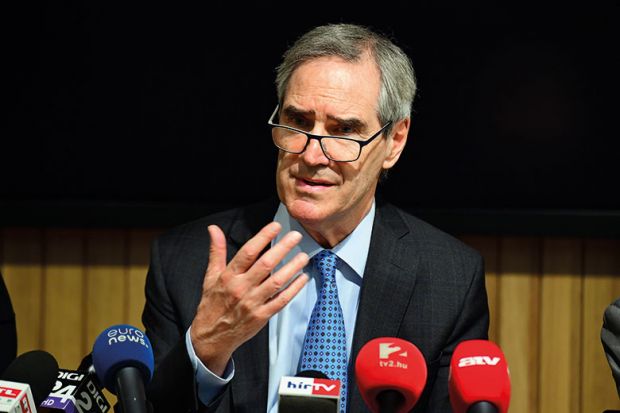The Central European University has confirmed that it will move to Vienna after repeated infringements of academic freedom by Hungary’s government.
Speaking at a press conference on 3 December, Michael Ignatieff, president of the Budapest-based university, announced that all new students starting in September 2019 would enrol at a new campus in Vienna.
It follows the refusal of Viktor Orbán’s administration to sign an agreement certifying the institution’s legal status, forbidding it from accepting new students from January.
“CEU has been forced out,” said Professor Ignatieff, who called the move “unprecedented”.
“A US institution has been driven out of a country that is a NATO ally – a European institution has been ousted from a member state of the EU,” Professor Ignatieff said of CEU, which was founded by Hungarian-born US financier George Soros in 1991.
Professor Ignatieff added: “If that is not an attack on a US institution or on academic freedom, I don’t know what is.”
The Canadian academic said that the decision had been taken because the Hungarian government had refused to ratify the agreement negotiated more than a year ago with the state of New York, which accredits CEU in the US, and which would have guaranteed its long-term future in Budapest.
With CEU’s admission cycle due to close at the end of January, the university was announcing its relocation to ensure that students still felt confident to apply for next autumn, he added.
“The Hungarian government knows about this deadline and has strung this out as long as possible,” said Professor Ignatieff, who added that “this game has to stop”.
“We want to move to a country where these games are not played and where the rule of law still means something,” he said.
The relocation decision was taken reluctantly as the university had a “deep and profound desire to remain part of Hungary”, Professor Ignatieff said, but it “cannot afford to wait” until the government made a decision.
He also cited the broader context of attacks on academic freedom by the Hungarian government, including its banning of the teaching of gender studies and efforts to reduce the independence of the Hungarian Academy of Sciences, as reasons for the move.
“This is a dark day for freedom in Hungary and a dark day for academic freedom,” concluded Professor Ignatieff.
CEU said that it retained accreditation as a Hungarian university and would “seek to continue teaching and research activity in Budapest as long as possible”.
Register to continue
Why register?
- Registration is free and only takes a moment
- Once registered, you can read 3 articles a month
- Sign up for our newsletter
Subscribe
Or subscribe for unlimited access to:
- Unlimited access to news, views, insights & reviews
- Digital editions
- Digital access to THE’s university and college rankings analysis
Already registered or a current subscriber? Login







